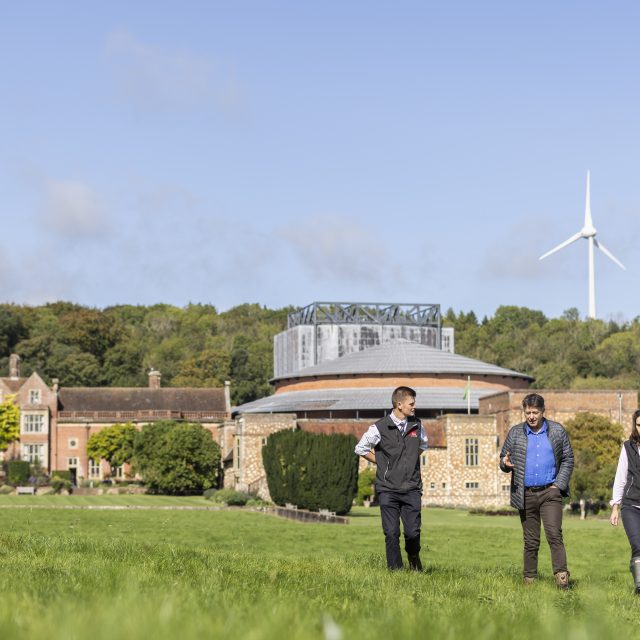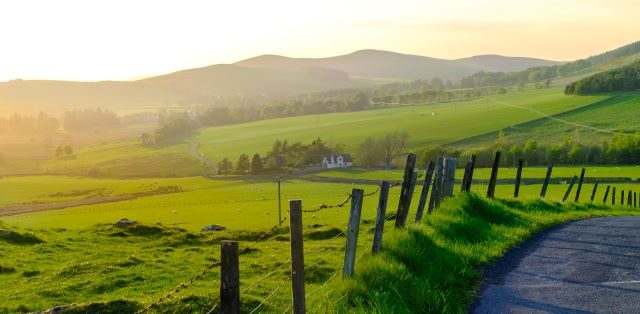Survey sheds light on farmer attitudes to the environment
The results of a new survey carried out jointly by Strutt & Parker and the Country Land and Business Association (CLA) has shed new light on farmers’ attitudes to the environment and the future of farming.
The Future of Farming survey carried out during June and July 2022 was answered by more than 200 respondents, of which 198 were landowners and managers in England so the analysis focuses on this group.
It showed that that most farmers and landowners are enthusiastic about delivering public goods such as protecting and improving soil quality and managing land to increase biodiversity but remain cautious about signing up to schemes like the Sustainable Farming Incentive (SFI) and Landscape Recovery Schemes.
Concerns have been voiced about the slow uptake of schemes like the SFI, but the survey points to farmers being much more open to taking steps to improve their environmental management and enhance nature than is sometimes portrayed.
For example, while the number of respondents who have carried out a carbon audit during the past three years was relatively low (23%), 56% are already making plans to reduce the carbon footprint of their farming business.
Although the survey showed that only 40% of the respondents confirmed they have or were planning to enter the SFI within the next three years – which seems low considering the government’s target of getting 70% of farmers signed up by 2028 – nearly two-thirds have or intend to sign up to the more established Countryside Stewardship Scheme.
When asked how likely or unlikely they would be to deliver a series of public goods with appropriate schemes and payments in place, 88% said they would be likely or very likely to take action to protect or improve soil quality and 82% said they would be likely or very likely to manage land to increase biodiversity – two key elements of the existing SFI.
The public goods that farmers and landowners are less enthusiastic about delivering are supporting public access, managing land to reduce flood risk and restoring cultural heritage, although many of these are situation dependent.
Over a third of respondents who indicated they would not be joining the SFI imminently said it was because the payment rates were not attractive enough given the costs of delivery, with 19% suggesting the process was too bureaucratic and 20% saying they wanted to see if the early stages were successful.
Rhodri Thomas, Head of Rural for Strutt & Parker, said: “The results of this survey are particularly timely, given the highly polarised debate around land use. Policy makers are looking to find a balance between food security, carbon sequestration, development and biodiversity, and understanding how farmers feel about the challenges they face may help with policy development.
“The survey results point to farmers and landowners being open to embracing land management practices that will reverse biodiversity decline and tackle climate change, but uncertain about the current schemes on offer.
“One of the most interesting findings from the survey was that 40% of respondents said they would be comfortable changing from 5% up to 20% of their land use on a permanent basis to prioritise nature recovery or climate change mitigation if the financial incentives were good enough.
“Coupled to this, there is also evidence that the most environmentally engaged land managers are the most focused on increasing productivity and trying new environmental schemes. This gives me encouragement that, if we get the incentives and advice right, there is a chance of boosting food output, managing the environment better and boosting the rural economy. It is possible to do all three.”
CLA president Mark Tufnell said: “This survey has provided useful insights into farmer and land manager attitudes to the environment and signals that while many farmers and land managers are focused on food production, they are still keen to take steps to protect and enhance the environment given the right policies and payments.
“The 40% intention to enter into SFI is encouraging. When asked why they had not entered SFI in 2022, the responses pointed to concerns about payment rates, but more frequently it was about waiting for more standards to become available or waiting to see if it would be a success. Only 2% said they were just not interested. These findings support the CLA’s call to Defra to fast-track the launch of new SFI standards and provide early clarity on payment rates so that farmers and land managers make informed decisions about the scheme.
“Similarly, it is encouraging to see the level of interest in Countryside Stewardship. Defra should capitalise on this and ensure that the scheme remains available until the replacement Local Nature Recovery Scheme is ready for full launch.”
Other key findings:
Land use changes
Farming is going to remain a core activity for all respondents with 58% not anticipating a change in their current proportion of farmed area, while 9% expected to increase the proportion farmed.
The remaining 35% expected to reduce the proportion of farmed land, most commonly by 10%, but some were expecting to reduce the farmed area by as much as 50%.
40% picked a figure somewhere between 5% and 20% when asked the question: What percentage of your land holding would you be comfortable changing the land use on a permanent basis to prioritise nature recovery or climate change mitigation if the financial incentives were good enough?
Carbon
Very few respondents said they were currently selling soil carbon credits (3%) and when asked whether they have concerns about selling soil carbon credits:
- 43% said they first wanted to understand their own carbon footprint and prioritise offsetting their own emissions
- 32% said they were not confident in the current buyers or schemes available
- 28% said they were worried they may need to prove their own low-carbon credentials to customers in the future
- Just over a third of respondents said they may be willing to sell soil carbon credits within the next ten years, but the most common response (40%) was that people feel they need more information on what selling carbon credits entails.
Wider business changes
The survey also offers an insight into what farmers see as the biggest challenges they face and how they are trying to build resilience within their businesses.
Challenges facing farming
The changes in agriculture policy were identified by 43% of respondents as the biggest challenge facing their farming business in the next 3-5 years. Unsurprisingly, volatile input prices, and commodity markets were also a concern for almost one third. Encouragingly, almost 80% had calculated the annual reductions in BPS over the transition period. Over 45% have already taken action to prepare for the loss of BPS, while 35% have a plan, albeit most are informal. That does leave a core 20% who have not looked in detail at the impact of BPS cuts or made a plan.
There was a range of responses to the challenges facing farming with 56% focusing on increasing the profitability of the core agricultural enterprises, 50% looking to diversify into non-agricultural activity, and 42% planning to increase land in environmental schemes. Other options included contract farming, finding off-farm work, or changing the business structure to reduce costs. Around 5% of respondents stated they were planning to leave farming in the next 3-5 years.
Strutt & Parker would like to thank all clients who took part in this survey which is being used by us to support our advisory work and by the CLA to inform government policy development.






